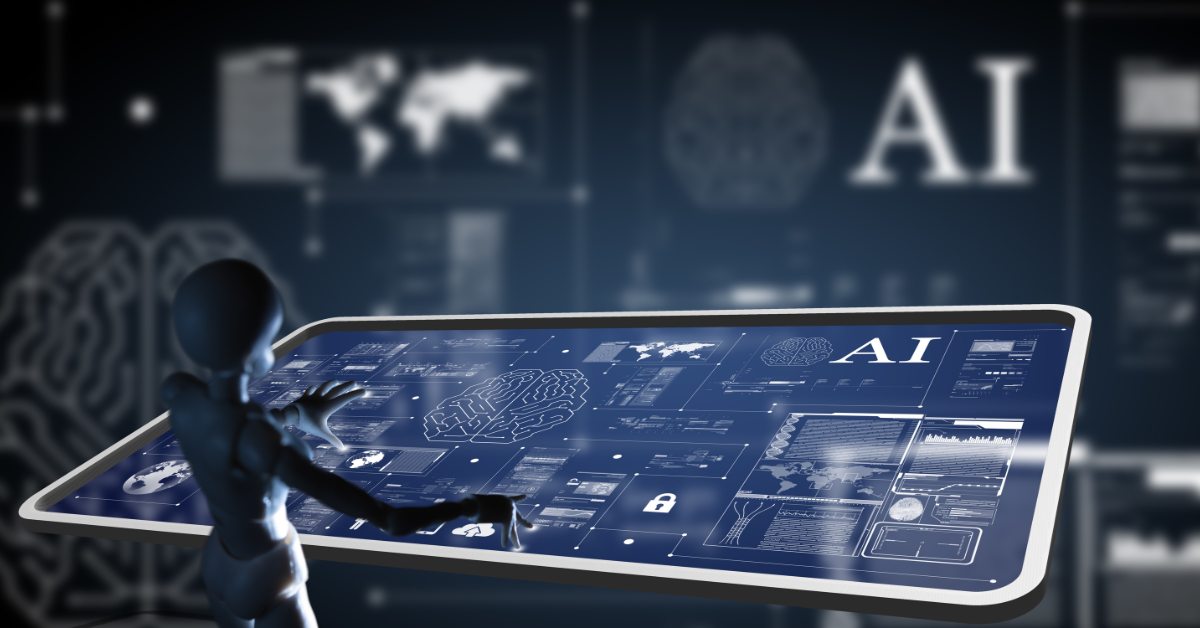The Key Benefits of AI in the Workplace: A Comprehensive Guide

- What is AI-Powered Automation?
- How Does AI-Powered Automation Affect Job Roles and Responsibilities?
- What are the Potential Benefits and Risks of AI in the Workforce?
- How Can Businesses Harness the Power of AI-Powered Automation While Minimizing Negative Impacts?
- Will AI Take Away Jobs or Create New Ones?
- Sign Up for Emeritus Courses to Enhance AI and ML Knowledge
AI automation today is rapidly reshaping industries and revolutionizing the workforce. According to a 2022 IBM Global AI Adoption Index report, 35% of companies are already leveraging AI automation in their operations, with an additional 42% actively exploring its potential. This dynamic adoption reflects the growing recognition of AI’s transformative power. As businesses strive for greater efficiency, enhanced decision-making, and improved customer experiences, embracing AI automation has become imperative. In this blog, we delve into the potential benefits and risks of AI in the workforce, along with strategies to harness its power while minimizing negative impacts.
What is AI-Powered Automation?
AI-powered automation seamlessly integrates artificial intelligence into various processes, thereby streamlining operations and enhancing efficiency. With the use of sophisticated algorithms, AI automation analyzes data, identifies patterns, and makes informed decisions, ensuring swift and accurate completion of repetitive tasks. Furthermore, it optimizes resource allocation, leading to a reduction in human errors and operational costs. By harnessing Machine Learning (ML) and natural language processing, AI automation enables systems to adapt and learn from new information, continually improving performance. As a result, businesses can achieve higher productivity, faster response times, and better customer experiences. Ultimately, AI automation revolutionizes industries, freeing up human potential for more strategic and creative endeavors, thus propelling organizations toward greater success and innovation.
ALSO READ: 6 Key Areas Where AI-Powered Automation is Making a Significant Impact
How Does AI-Powered Automation Affect Job Roles and Responsibilities?
AI-powered automation significantly impacts job roles and responsibilities across various industries. With the integration of AI automation, tasks become more efficient, reducing the need for manual labor. As a result, job roles may evolve and require upskilling to adapt to the changing landscape. Additionally, AI automation may eliminate some mundane tasks, allowing employees to focus on more strategic and creative aspects of their jobs. However, this shift can also create concerns about job displacement. Organizations must proactively address these challenges by providing reskilling opportunities and fostering a culture of continuous learning. Embracing AI automation can lead to increased productivity and improved decision-making, enabling employees to become more agile and innovative in their roles. Overall, AI-powered automation reshapes job dynamics, emphasizing the importance of human-AI collaboration in the future workforce.
What are the Potential Benefits and Risks of AI in the Workforce?
Benefits
1. Enhanced Efficiency
AI automation introduces efficiency gains by automating repetitive tasks. As a result, employees can focus on more strategic activities, leading to overall productivity improvement.
2. Improved Decision-Making
AI-powered analytics processes vast amounts of data. Consequently, organizations can make data-driven decisions faster and more accurately, resulting in better business outcomes.
3. Workforce Augmentation
By handling routine tasks, AI automation complements the workforce. Employees can, therefore, concentrate on creative problem-solving and customer-centric activities, leading to higher job satisfaction.
Now let’s consider the potential downside of AI automation in the workplace—and what can be done to address them.
Risks
1. Job Displacement
The adoption of AI automation may lead to job displacement, affecting workers in certain roles. This makes reskilling or finding new job opportunities a dire necessity.
2. Changing Job Roles
The integration of AI automation may require employees to adapt to new responsibilities. Therefore, upskilling and training are crucial to facilitate a smooth transition.
3. Ethical Concerns
AI automation raises ethical questions regarding data privacy and bias. Therefore, maintaining transparent and unbiased AI algorithms is essential for building trust among employees and customers.
ALSO READ: The Benefits of AI: How it Can Help Your Business
How Can Businesses Harness the Power of AI-Powered Automation While Minimizing Negative Impacts?
 The best way to do so is to plan strategically. Firstly, businesses must identify areas where AI automation can bring the most value and efficiency. Secondly, they need to invest in employee upskilling or reskilling, helping them adapt to changing job roles. Thirdly, they must ensure transparent and ethical AI algorithms to address bias concerns.
The best way to do so is to plan strategically. Firstly, businesses must identify areas where AI automation can bring the most value and efficiency. Secondly, they need to invest in employee upskilling or reskilling, helping them adapt to changing job roles. Thirdly, they must ensure transparent and ethical AI algorithms to address bias concerns.
Moreover, businesses should proactively communicate with employees about AI integration to alleviate fears. This also calls for conducting thorough testing and monitoring of AI systems to reduce errors and risks. Additionally, businesses need to establish clear guidelines for AI-augmented decision-making to handle human oversight. By taking a thoughtful approach, businesses can optimize the benefits of AI automation while mitigating potential drawbacks.
ALSO READ: Is There a Demand for AI Engineers? Can You Make It a Successful Career?
Will AI Take Away Jobs or Create New Ones?
AI automation will have a mixed impact on jobs, leading to both job displacement and the creation of new roles. A recent Goldman Sachs report suggests that AI could replace an estimated 300 million full-time jobs over a 10-year period. As AI automation takes over repetitive and routine tasks, certain job roles may become redundant, leading to job displacement. However, AI’s integration will also create new job opportunities in various domains. These new roles will emerge to manage and oversee AI systems, analyze data, and develop and maintain AI technologies. Additionally, its potential to enhance productivity and drive innovation will stimulate the creation of entirely new industries and job sectors.
Transitioning to an AI-driven workforce will require upskilling and retraining for workers to adapt to these emerging roles. As AI takes care of mundane tasks, human employees can focus on complex problem-solving, creativity, and emotional intelligence-driven tasks, leading to more fulfilling and rewarding jobs.
Sign Up for Emeritus Courses to Enhance AI and ML Knowledge
As the article shows, the rise of AI automation presents a transformative era for the workforce. While concerns about job displacement are valid, businesses must also recognize the potential for creating new and innovative roles. Embrace the power of AI automation today and unlock a world of possibilities for your business: Explore Emeritus’ artificial intelligence courses and machine learning courses and stay ahead of the curve.
Write to us at content@emeritus.org






